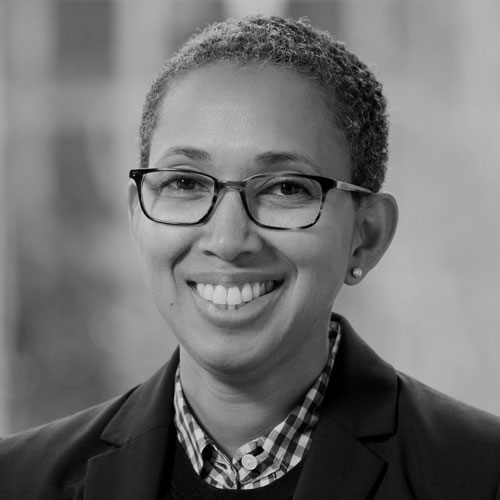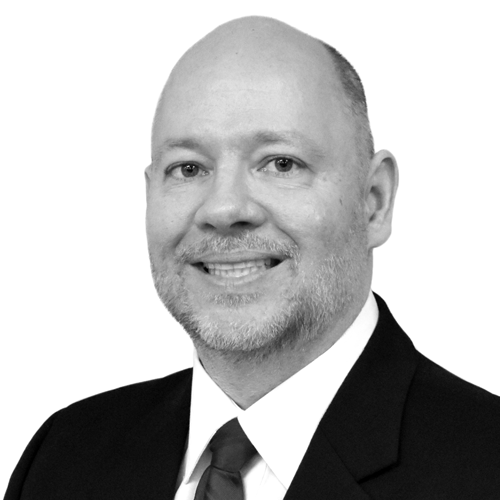As the global head of litigation and government investigations for Alcon, Chris Cook describes his job as akin to that of a traffic cop trying to help people avoid collisions at a bustling crossroad where the signals aren’t always synced.
“I derive great joy and personal satisfaction from navigating the intersection between legal systems, cultures, and languages in different countries. It’s something that really animates me,” says Cook, who joined Alcon in November 2017 after serving as the general counsel to Walmart’s subsidiary in Central America.
Since its founding in 1945, Alcon has evolved from a small ophthalmic shop in Fort Worth, Texas, into a global business that operates in seventy-four countries and serves patients in more than 140 nations, with roughly half its sales coming from outside the United States. Alcon’s product offerings include surgical devices and equipment as well as vision care products for the consumer market. Although those remain the same regardless of the market, that certainly can’t be said of the corporate climate from country to country.

When a company operates offices and manufacturing facilities and serves customers around the world, its employees and executives must grasp the complexities of everything from court systems to contract execution to competition laws in every country they do business. So, some things are bound to be lost in translation, both literally and figuratively. Among other functions, Cook and his team provide legal advice on corporate compliance, and those issues are not always clear-cut across borders. Making sure meanings and messages are clear when it comes to legal matters can be frustrating, but Cook also finds it fun.
“In any cross-border legal issue, there’s a necessary point where a translation has to occur, whether it’s language or law or business or policy or politics,” he says. “I find that translation point to be absolutely fascinating.”
The key to negotiating in so many different systems is understanding your own limits and educating yourself as thoroughly as possible when it comes to local laws and regulations, he says. That could even mean reconciling with the fact that a company might not be able to seek support from a country’s courts at all.
“The reliability of the judicial system is not uniform between countries. In the US, we are accustomed to a high degree of fairness and predictability in the court system,” he says. “On the other end of the spectrum, some countries have virtually no rule of law, so obtaining justice in court is not even an option.”
Even in countries that offer consistency in the courtroom, there’s no way to grasp every nuance of another nation’s justice system. In fact, it’s crucial for legal teams to recognize that they might not know every peril and pitfall when it comes to foreign financial laws and regulations, Cook says.
“One of the greatest dangers to an in-house lawyer in a global company is allowing your own legal education to cloud your judgment about the risks in other countries,” Cook says. “You cannot act as if the US legal system is the only correct one, or even that common words or concepts have the same meaning in one legal system as in another. Success lies in learning to protect your client’s interests without letting your own perspective warp your advice.”
To offer a few examples, the laws that govern contracts and competition vary greatly from country to country, so it might be not only be permissible, but legally required, for the company to execute agreements differently or to change standard practices to adhere to local laws. At the same time, basic ethical principles are non-negotiable regardless of region. Cook says Alcon’s ethical training emphasizes that you have to operate your business with honesty and integrity and treat patients, customers, and employees in a way that’s consistent with corporate values.
And Cook’s business partners have come to value his approach to tackling legal issues in this manner, as well.
“Chris brings tremendous perspective to Alcon—he is equal parts practical and creative in approaching complex legal issues, says David R. Marriott, partner at Cravath, Swaine & Moore LLP. “His experience in government, private practice, and corporate America make him an extraordinary leader, and it is a pleasure working with him.”
And for Cook, a steadfast focus on ethics has also helped him to excel in his global legal work.
“Legal systems may differ, but ethics do not. While it is critical to know that certain conduct is commonplace or even legally permissible in a country, it is equally important to know that these facts do not relieve you of your ethical obligations within the company,” Cook says. “There, you must have, if not rigidity, an absolute clarity on where your company’s moral compass points.”
Healthcare companies often are targeted by regulators or private lawsuits, sometimes justifiably but often not, he says. Cook spent a significant slice of his career defending pharmaceutical companies, device manufacturers, laboratory testing companies, hospitals, doctors, executives, and public officials in government investigations and in civil litigation. In the worst cases, he saw employees and executives judged and penalized for actions that were deemed questionable or illegal only after the fact.
In that time, he’s realized that the complex and constantly changing rules governing the industry can make enforcement murky. Although he expects the debate to continue in this country surrounding the role regulators, lawsuits, and public policy all play in governing the healthcare industry, he added that the current situation isn’t ideal for anyone.
“Regulation through enforcement is sometimes unfair and always expensive,” he says. “Ultimately, that cost is borne by taxpayers and consumers.”
At this juncture in his career, Cook is happy to play a global role in a company that makes a clear difference in people’s lives through its products and charitable contributions, which includes outfitting a mobile operating room in Orbis’s Flying Eye Hospital, an MD-10 jet used to bring eye surgery to patients in the developing world.
“Our surgical business literally saves people’s eyesight from such conditions as cataracts and glaucoma. Our vision care business makes the industry’s most advanced contact lenses. The company spends a half billion dollars every year on R&D and millions more on charitable donations and medical missions,” he says. “If I can represent my client as well as Alcon has built its business, I’ll be really proud. Being a lawyer at a great company can be a heavy burden to bear because the primary goal is simply to live up to the high standards of the organization that it is your privilege to represent.”
Photo by Phil Robbins


